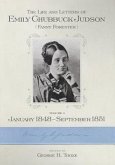This volume of essays focuses on the thought of John Gill, the doyen of High Calvinism in the transatlantic Baptist community of the eighteenth and early nineteenth centuries. Among the topics covered are Gill's trinitarian theology, his soteriological views, his Baptist ecclesiology, and his use of Scripture. Other papers are more focused, examining, for instance, his clash with the Arminian Methodist leader John Wesley over the issues of predestination and election, a clash that decisively shaped Wesley's perspective on Calvinism. The tercentennial of Gill's birth in 1997 is a fitting occasion to issue this study of a man whose systematic theology and exposition of the Old and New Testaments formed the mainstay of many eighteenth-century Baptist ministers' libraries and who has never been the subject of a major critical study.








